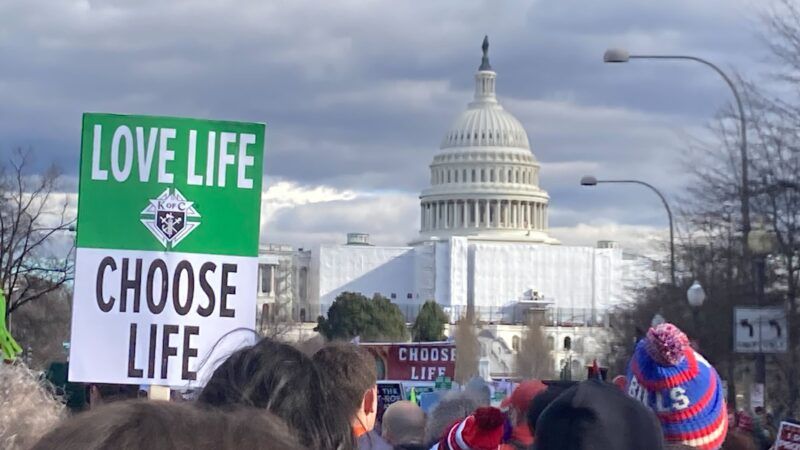Study Finds Texas' 6-Week Abortion Ban Resulted in 10,000 Additional Babies
A study from researchers at Johns Hopkins is the first to look at the effects of Texas' 2021 "Heartbeat Act" on live births.

A new study from researchers at Johns Hopkins Bloomberg School of Public Health has found that Texas' controversial new abortion restrictions resulted in an additional 10,000 babies being born in the state.
The Texas law—S.B. 8 or the Texas Heartbeat Act—bans abortion after fetal cardiac activity (a heartbeat) can be detected, which is typically within the first six weeks of pregnancy.
S.B. 8 went into effect in September 2021. The John Hopkins study, published yesterday in the Journal of the American Medical Association (JAMA), looked at the number of babies born in the state from April 2022 (the first birth cohort affected by the policy) to December 2022.
The researchers then used statistical modeling of live births observed in all 50 states and the District of Columbia between 2016 and 2022 to create a "synthetic Texas" that didn't adopt S.B. 8. They found that an additional 9,799 babies were born in actual Texas.
"Although our study doesn't detail why these extra births occurred, our findings strongly suggest that a considerable number of pregnant individuals in Texas were unable to overcome barriers to abortion access," said study author Alison Gemmill.
The Hopkins study is the first to look at the effects of the Texas law on live births specifically. A previous 2022 study published in JAMA found that the law reduced in-state abortions and increased by a smaller number the number of Texans receiving abortions out of state.
Another 2022 JAMA-published study found that Texans' requests for mailed abortion pills increased dramatically after the passage of S.B. 8.
The results of the latest study "suggest not everyone who might have received an abortion in the absence of [S.B. 8] was able to obtain one," write Hopkins researchers.
Abortion advocates, supported by research from pro-choice think tanks, have argued that abortion restrictions won't necessarily reduce abortion, they'll merely increase the number of unsafe abortions performed. The Hopkins study contradicts the former half of that narrative.
The Hopkins study's authors frame their findings in exclusively negative terms.
"The study's findings highlight how abortion bans have real implications for birthing people, thousands of whom may have had no choice but to continue an unwanted or unsafe pregnancy to term," says Suzanne Bell, another one of the study's authors. "The majority of people who seek abortions live below or close to the poverty line. So many of these birthing people and their families were likely struggling financially even before the recent birth."
Their research nevertheless suggests that legal restrictions on abortion are, in fact, stopping abortions and ensuring more children are born. Pro-life supporters can therefore view the Hopkins study as vindication of their stance that abortion restrictions are saving the lives of unborn children.
Pro-choice advocates who have no moral qualms about abortion can also find a confirmation of their worldview in the Hopkins study. By preventing abortions that women would have otherwise chosen to have, the Texas law is resulting in a curtailing of women's reproductive autonomy.
The Hopkins study presents complications for more moderate pro-choice advocates who might view abortion negatively but are skeptical of state restrictions on the practice. It more clearly illuminates the direct tradeoff between legal protections for abortion access and the lives of the unborn.
Rent Free is a weekly newsletter from Christian Britschgi on urbanism and the fight for less regulation, more housing, more property rights, and more freedom in America's cities.


Show Comments (136)